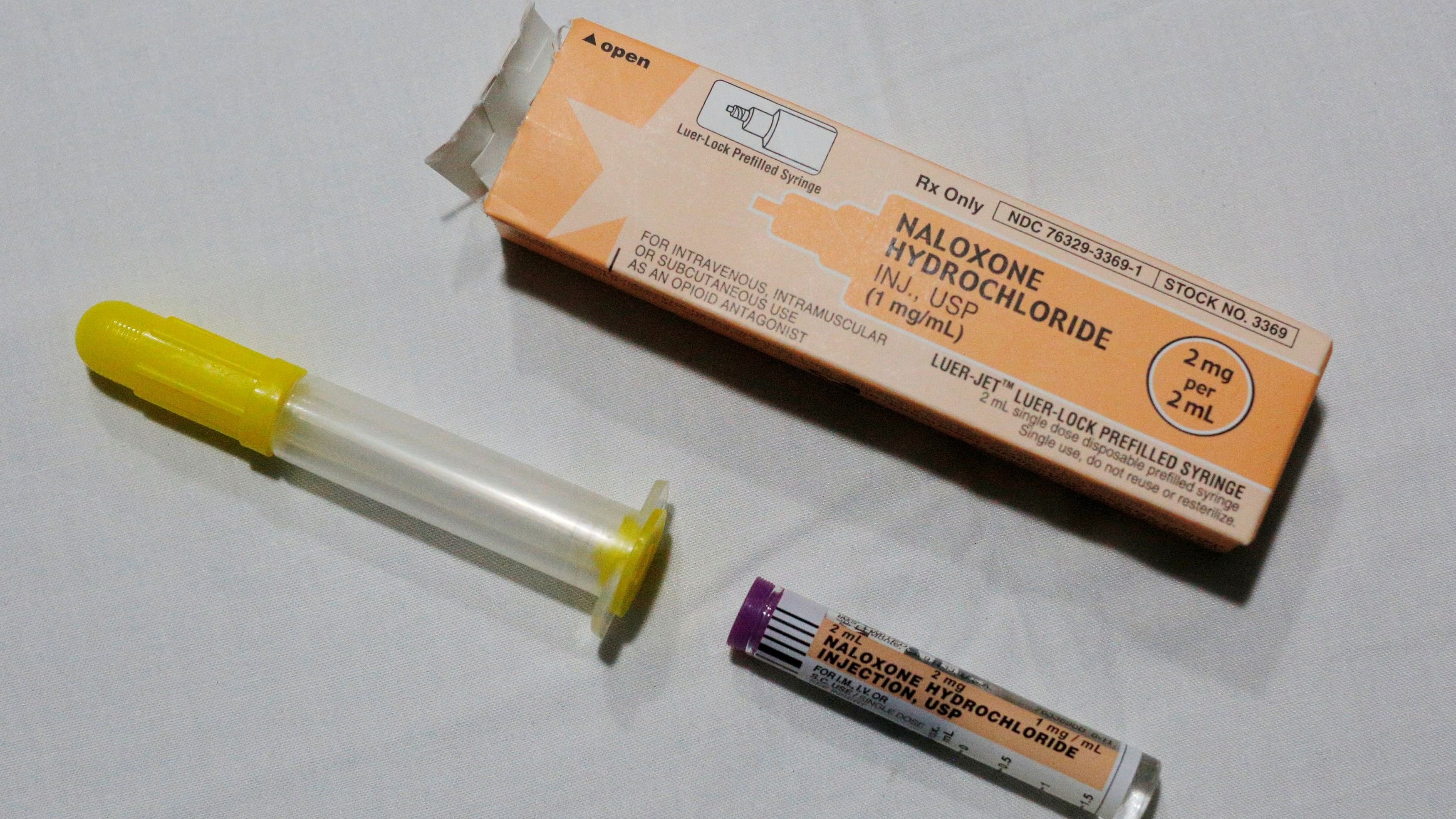
Representative image showing a dose of the opioid overdose reversal drug Narcan, or Naloxone Hydrochloride, in an ambulance in Peabody, Massachusetts.
Credit: Reuters Photo
There has been a spike in drug overdose cases involving Indian students in United States in the past few months, specifically those from the Telugu community.
A report in Times of India quoted the Telugu Association of North America (TANA) from Texas, California, and Connecticut saying that the primary reasons for such a rise in drug overdose cases among Indian students has been the easy availability of "substances" on college campuses.
The report comes months after two Telangana-based students pursuing their Master's degree from University of Texas in Austin were found dead under mysterious circumstances. Initial investigations reportedly claimed that they died three minutes apart resulting in "drug overdose". An NBC report from earlier this year also quoted the Connecticut Chief Medical Examiner as saying that the two "suffered from accidental overdose involving fentanyl".
In the past 12 months, TANA found that there have been at least 30 such drug overdose incidents in US involving Indian students. Ashok Kolla, TANA ex-secretary and member, told TOI, "The overall number of Indian students taking drugs is much higher. Some of them were found overdosed and in an unconscious state within a few months of coming to the US."
The publication also quotes the Association as saying that unemployment is likely to be one of the factors fueling drug addiction amongst Indian students in US.
However, Vishweshwar Reddy Kalavala, chairman of the Global Telangana Association asserted, "Unemployment issues typically arise later, usually after students complete their master's degrees."
Kalavala highlighted that "The primary reason for drug use is easy availability of substances on college campuses, often obtained through peers. Students start experimenting with drugs due to peer pressure or a desire to explore new experiences, fuelled by their newfound freedom. Additionally, in many parts of the US, drugs such as marijuana are legal and relatively inexpensive."
TANA's former secretary Kolla further said, "In Connecticut, a student was recently found overdosed and unconscious, but he survived after receiving timely treatment. He is currently staying with his relatives and is undergoing counselling."
Another 27-year-old youth, hailing from Hyderabad and who currently resides in Texas, detailed his 22-year-old cousin's state who arrived to Houston in September 2023 for a Master's degree. On the condition of anonymity, the Texas resident shared, "He (cousin) used to borrow money from me, his friends, and other relatives citing expenses for college assignments and stationery. Later, his roommates told us he had taken to drugs. He stopped paying rent and attending college, using the borrowed money to fund his addiction. He is doing better now."
The publication further reported the Telugu association authorities as saying that the students in US get access to drugs for as cheap as $15-20 (Rs 1,255.81-1,674.41), without specifying the quantity. The association conducts awareness campaigns and webinars for the students on substance abuse. "We also organise de-addiction counselling sessions," according to Kalavala.
"If an international student is arrested or violates the law, most police or law agencies will report the matter to the Immigration and Customs Enforcement (ICE). Then ICE determines whether the student should be deported or not," he added.
A de-addiction therapist from Atlanta with nine years of experience, said, "I see at least 10 students aged 18 to 22 each month dealing with addiction to alcohol or drugs. Many more are depressed, burdened by unemployment and the pressure of repaying loans."